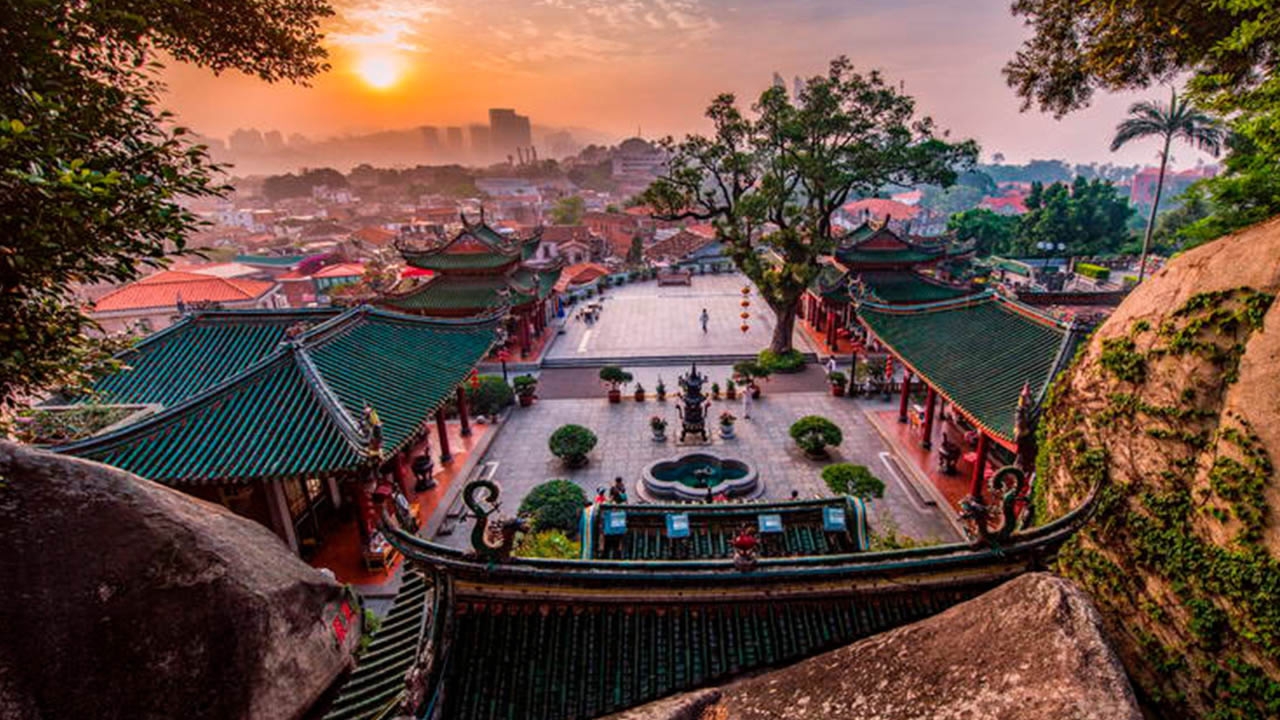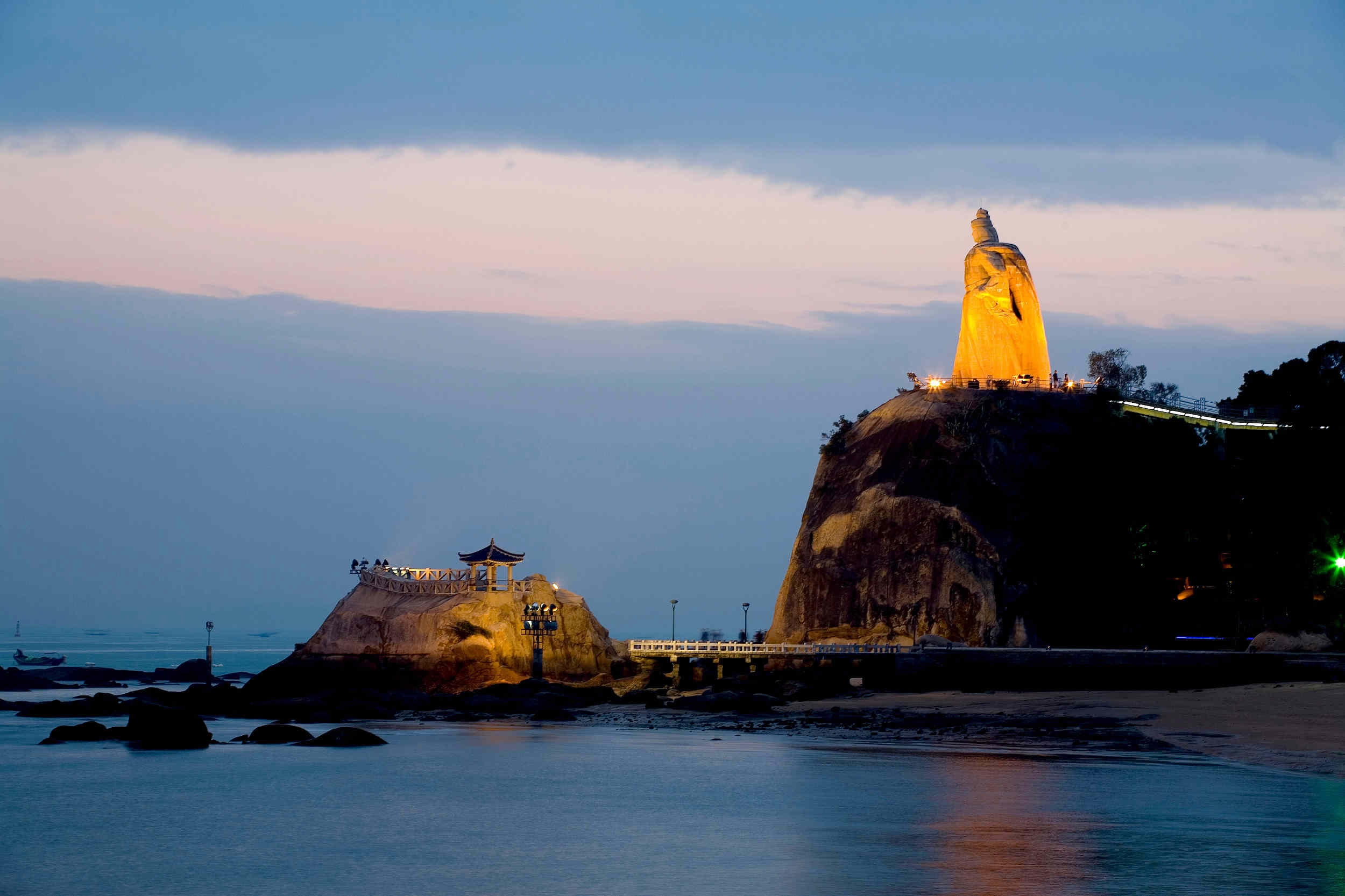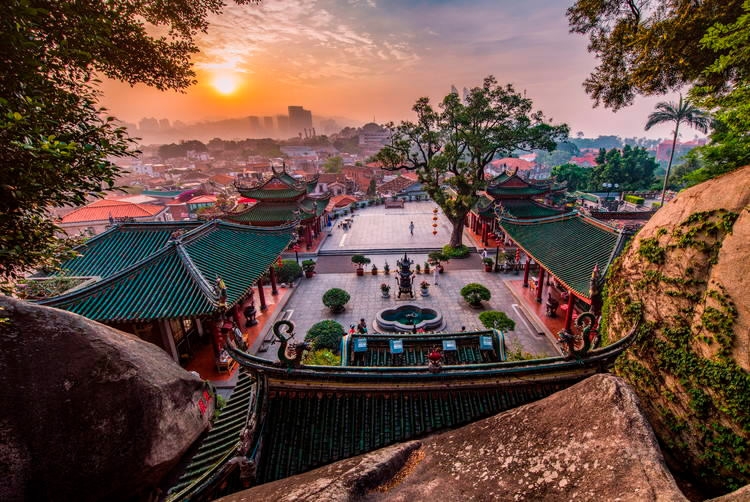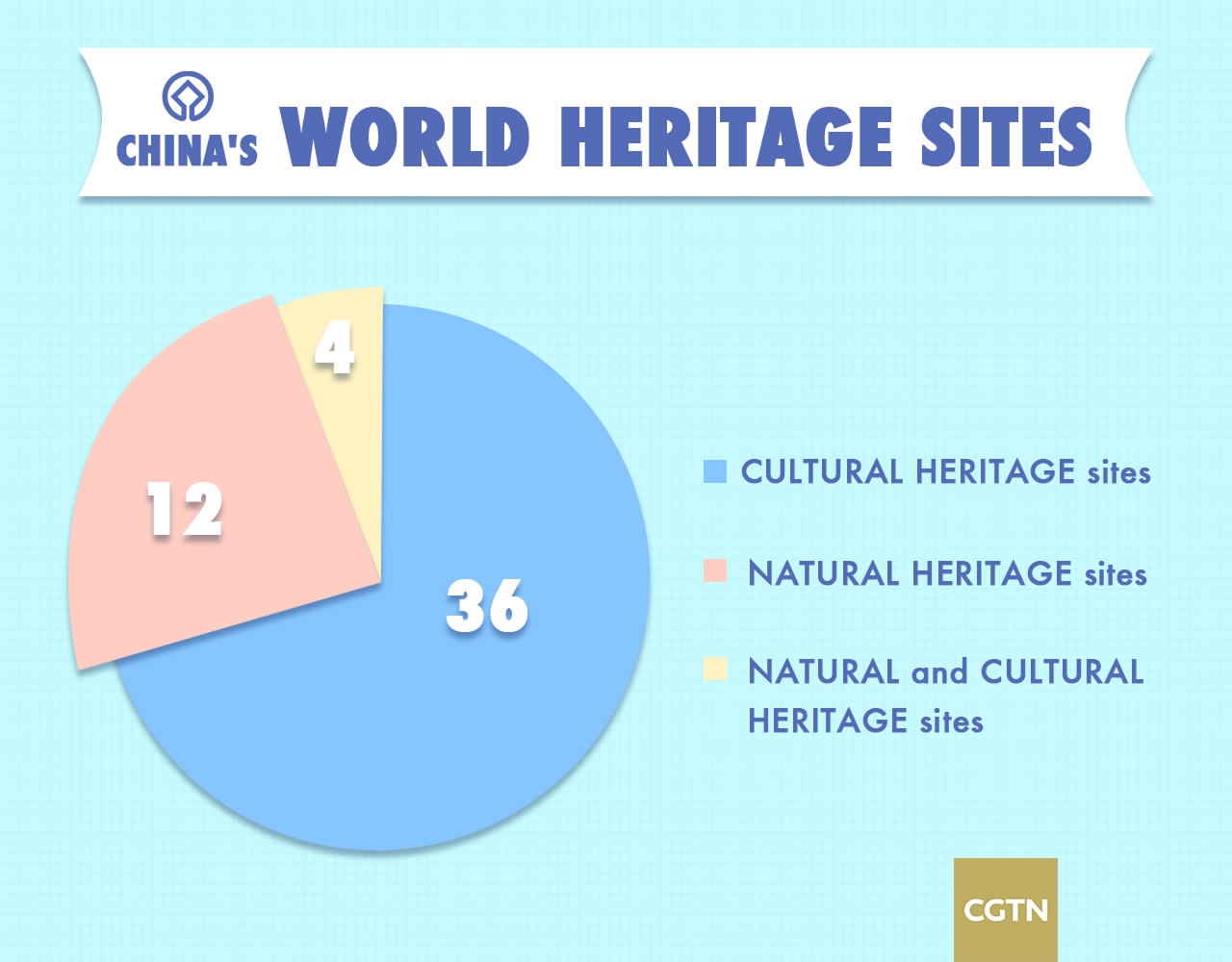Explore Gulangyu – China's 52nd UNESCO world heritage site

China on Saturday successfully earned another place on the UNESCO World Heritage list, when its famous tourist spot Gulangyu Island obtained UNESCO World Cultural Heritage status.
That came one day after Hoh Xil in northwest China's Qinghai Province was put on the list as a World Natural Heritage site at the ongoing 41st session of the World Heritage Committee in Krakow, Poland.

Tourists visit historic buildings on Gulangyu Island, Xiamen, Fujian Province on June 26, 2017. /VCG Photo
The 21-member committee hailed Gulangyu - also known as Kulangsu – as a unique place which has witnessed the process of multicultural exchanges and integration. It says that the inscription serves as a magnet for international cooperation and financial assistance for heritage conservation projects.
Gulangyu facts

CGTN Photo
Gulangyu Island dates back over 3,000 years, and human activity was first recorded there about one century later.
With the opening of a commercial port at Xiamen in 1843, and the establishment of the island as an international settlement in 1903, this island off the southwestern coast of the Chinese empire became an important window for Sino-foreign exchanges.
Thanks to the influx and integration of outsiders, the small fishing village has developed into a world-famous site with a distinct cultural and communal environment.
"The island was home to an international community made up of local people, overseas Chinese and foreigners," said Wu Yongqi, a historian on Gulangyu. "It was a distinct combination and the integration of their cultures made the island unique."
No easy application

Zheng Chenggong Statue on Gulangyu Island, Xiamen, Fujian Province. /VCG Photo
Gulangyu started its application to UNESCO in 2008. After years' of preparation and obtaining approvals at various levels, China's State Council finally recommended Gulangyu to UNESCO for consideration as a World Cultural Heritage Site in 2016.
In its bid, Gulangyu listed 53 groups of representative historical buildings, four historical roads and seven representative natural landscapes.
To be considered as a World Cultural Heritage site, at least one out of six selection criteria set by UNESCO has to be met.
Gulangyu meets two of the criteria, including having an "outstanding example of a type of building...which illustrates (a) significant stage(s) in human history," as well as exhibiting "an important interchange of human values" in terms of the site's buildings, planning or architecture.
'Honor and responsibility'

Sunlight Rock Temple towards the rising sun on Gulangyu Island, Xiamen, Fujian Province. / Cultural Heritage Conservation Center of THAD Photo
Peng Zhaorong, a professor from Xiamen University, said that with the UNESCO cultural heritage status, Gulangyu will help promote China's maritime culture.
"Chinese culture has long been featured as an agricultural civilization. But in fact, marine civilization is also an important part of our culture and history. In this regard, Gulangyu will definitely enhance people's understanding of the island culture in China," Peng said.
However, experts warn that better protection is urgent.

Crowds of tourists on Gulangyu Island, Xiamen, Fujian Province. /VCG Photo
Every year, Gulangyu receives more than 10 million visitors. That poses heavy pressure on this small island, where ideally population flow would not exceed 25,000 per day.
Typhoons, fire hazards, pests and diseases are all threats to the more than 2,000 intact historical buildings on the island.
"Better protection is what we want to achieve through the world heritage inscription," said Zheng Yilin, director of Gulangyu island management committee.
China's 30-year journey with UNESCO
This year marks the 30th anniversary of China's first inclusion on the UNESCO World Heritage List.

CGTN Photo
Since 1987, when six Chinese sites were recognized as world heritage sites, China now has had 52 world heritage sites listed by UNESCO, more than any other country.
Related stories:
China's Gulangyu island joins UNESCO world heritage list
China seeks UNESCO recognition for two more sites
China succeeds in bidding for UNESCO heritage status for Hoh Xil in Tibet
